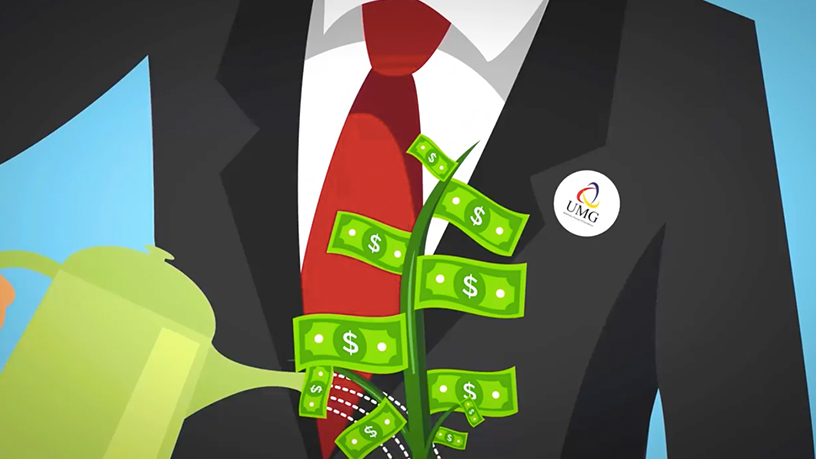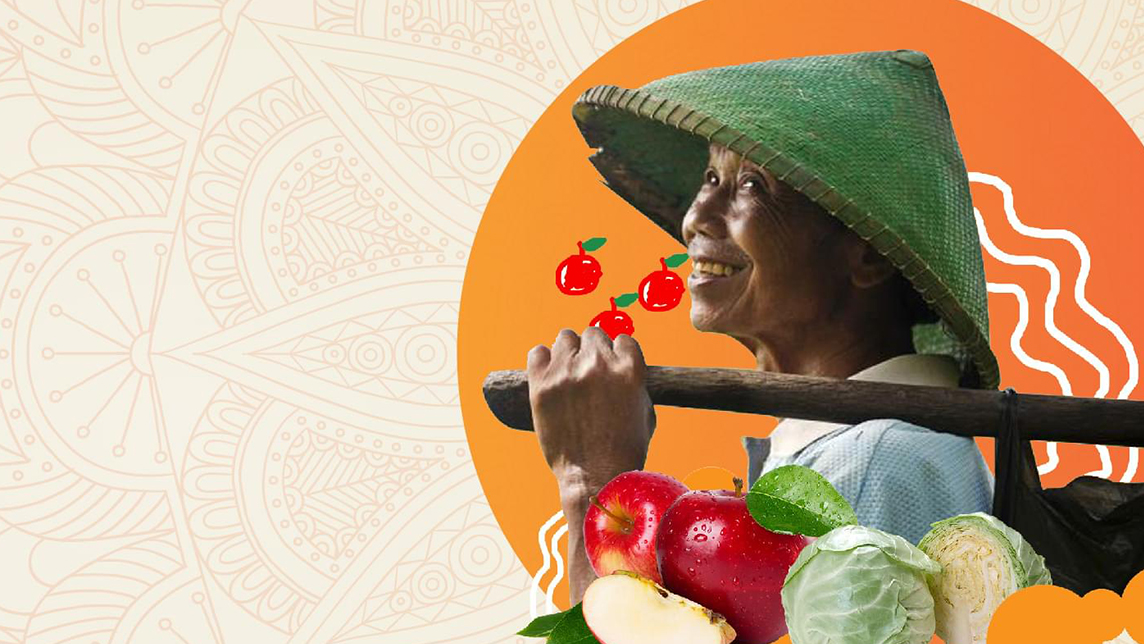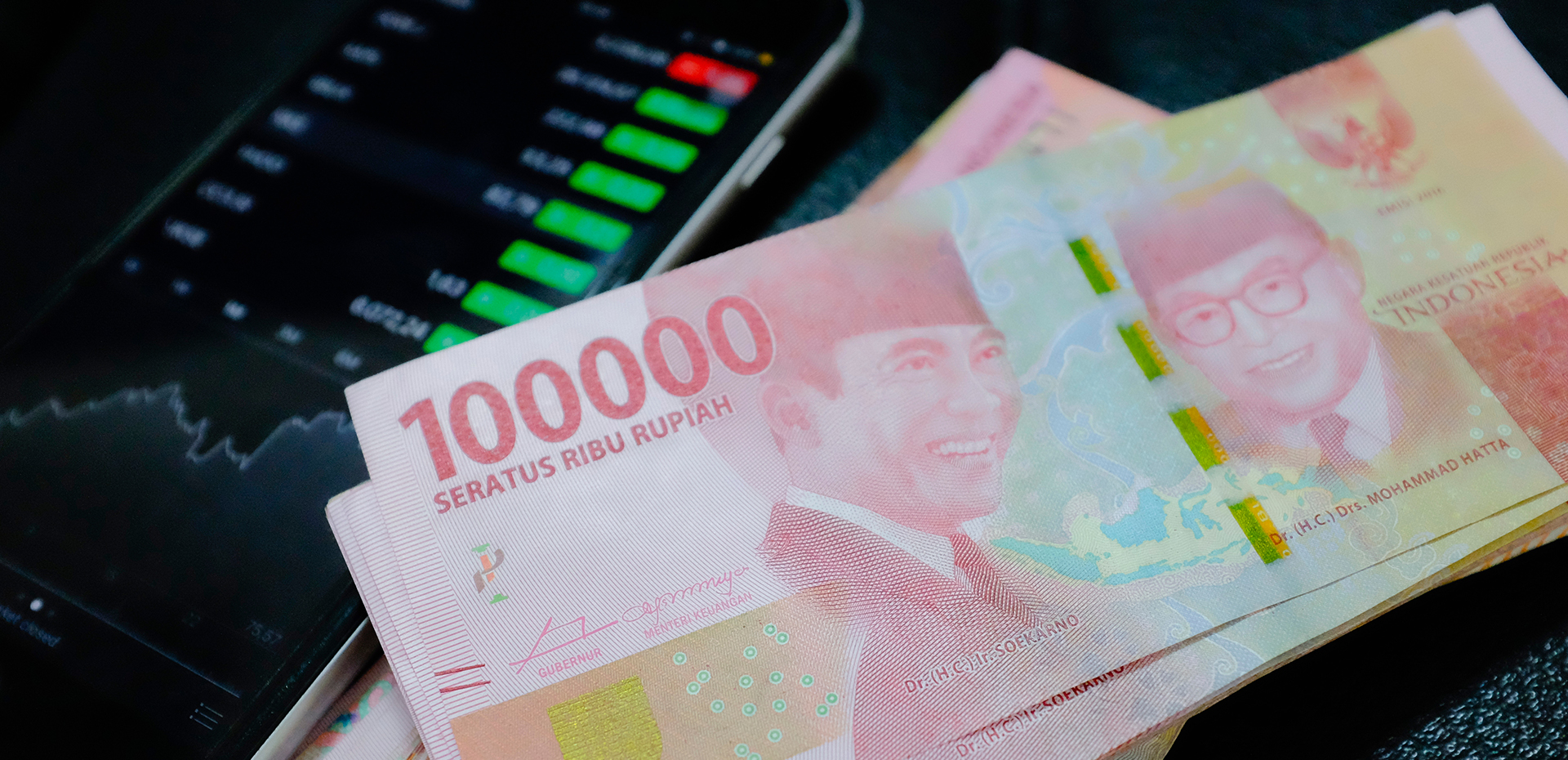Slowly but surely, more skilled founders are answering the call to make Indonesia's agriculture more efficient and economically sustainable. Investors are eager to enter this sector, which will be increasingly important as populations grow and climate change necessitates innovations in food production. Myanmar-based conglomerate UMG, founded by Indonesian entrepreneur Kiwi Aliwarga, is one such investor searching for new opportunities through its VC arm UMG Idealab.
Jefry Pratama is the general manager of portfolio management and investment at UMG Idealab. He also has significant experience in developing communities of startup founders and other entrepreneurs, including the Indonesia Startup Founder (IDSF) community. Through UMG Idealab, UMG has invested in 29 companies so far, with at least four of them in the agritech sector.
In an interview in September 2019, Pratama discussed the state of Indonesia's agritech startup ecosystem and how UMG is supporting this sector through its investing and business-building activities. More details can be found in theIndonesia Agritech Report 2020.
This interview has been edited for length and clarity.
Based on your experience in startup community building, what are the types of challenges that agritech startups work on?
In the agritech chapter of Indonesia Startup Founder, we have segmented the businesses into four major verticals. The first one is P2P lending; the second is e-commerce/marketplace; the third is technology development; the fourth is farmers' education and guidance. We can observe the trends by looking at the startups based on these four verticals.
Startups such as Kedai Sayur, TaniHub [of TaniGroup] and SayurBox fall under the e-commerce/marketplace category. These startups are trying to solve the middleman problem in the supply chain by helping farmers bring their produce directly to the end-user market. They are trying to cut down on the complexity of agricultural supply chains and the number of go-betweens that can manipulate the price to almost double what farmers sell for.
P2P lending startups such as TaniFund [of TaniGroup] and Crowde are solving the problem of capital distribution in agriculture. They're channeling funds from people who are interested in investing in agriculture. In farmer education and guidance, these startups focus on empowering rural communities to improve their livelihood, provide education, sell their harvest, and improve productivity.
Finally, the technology providers are those who develop various tech that can be used in agriculture. This includes MSMB.
Can you tell us a bit more about MSMB?
MSMB was founded by agriculture academics in the university ecosystem in Yogyakarta, The best part of working with the university ecosystem is that we have access to researchers and students. The researchers can be mentors in the business, while students can become employees after they graduate. MSMB is a way of commercializing university research. There are many universities involved, but it was started and based at Universitas Gadjah Mada's Agriculture Technology Faculty. We now have 50-60 people working there. The business consists of technological development and a “conventional” vertical from which we get revenue.
We're implementing technology that can be used directly on farms to improve productivity
What are the business activities of MSMB?
On the tech side, we're developing “smart farming 4.0.” We're implementing technology that can be used directly on farms to improve productivity. This includes sensors, drone sprayers, weather monitoring, etc. On the “conventional” business side, we sell farming commodities. In agritech, the best way to get revenue so far is to sell the harvest. We need to at least cover our expenses before we can innovate further, and that's what we're doing here by selling commodities.
What about Crowde?
Crowde does P2P lending for farmers and they have not changed their focus. They channel funds from individuals and institutions that want to invest in agriculture to the farmers who need extra help. Crowde also provides guidance for the farmers because they have to make sure that the funds from lenders are properly used and can lead to returns. They control the process from end-to-end, getting the money, using the money to buy the supplies for the project and then selling the harvest to the off-takers.
What is UMG Idealab's investment philosophy? What kind of support do you provide to your portfolio companies?
We want to be the kind of innovation lab that can create solutions for certain problems in Indonesia. We do this by empowering youths who have potential and good product ideas but who aren't yet confident in developing their business. We provide mentoring through routes such as progress monitoring, collaborations and technological support.
We have an investment thesis that guides our decisions. We start by evaluating startups in certain strategic sectors, such as agriculture, fishery, education, etc. We also invest in technology providers, which are startups that focus on developing new technology such as VR, AI, etc. that do not fit one specific industry. We integrate the technology they develop with the industry-specific startups and have them collaborate to develop new products.
Eventually, we will be able to offer the products of these startups to our customers abroad. The derivative products that these startups make, from sensors to apps, can be brought to other countries where UMG is present. We could also offer UMG's own equipment to the startups or their clients, but it's not been done yet.
In some cases, we have duplicated the business models of successful startups in our portfolio to other markets. For example, we have developed startups that are similar to MSMB and Crowde in Myanmar.
Is UMG Idealab interested in any specific part of agritech?
Data is an interesting issue to tackle. MSMB is developing an app called RiTx Bertani to collect as much data from farmlands as possible. This data is of interest to investors, especially banks. The banks want to disburse soft loans to farmers, but they have never reached the target amount of loans approved because there's often not enough data for them to make the judgment.
Normally, each of us can have a personal credit score based on our financial activities and the banks can decide whether a loan applicant is risky or not. This is not the case in agriculture. The financing companies and agriculture grants will be more confident in disbursing their funds if they have the data and can therefore make better decisions on who to fund. If there is a big database for agriculture data, we can integrate other industries, such as insurance, farming supplies, heavy equipment, etc.
Agriculture is very strategic for Indonesia. I'd like to invite the youth to dive into this field. Don't abandon agriculture
What are the major challenges that agritech startups face in developing their business?
Each of these segments face different challenges. P2P lending startups will have to ensure that the funds they disburse are properly received and used for the intended purposes. Sometimes, when the farmers get money, they use it for purposes other than farming. For example, they could use it to fund their children's wedding or to buy a motorcycle.
Marketplaces may find it difficult to find farmers that can supply products of sufficient quality and in the required quantities. For the farmer guidance startups, the challenge is getting acceptance for their methods. Finally, for the tech developers, the challenge is implementing and gaining acceptance from the farmers.
Investors are now becoming more interested in agritech. Is there anything in particular that investors should look out for?
There are now many more local and foreign investors trying their luck in agritech, such as Openspace, East Ventures or Alpha JWC. For the next round, I think the data gathering part can be developed further.
What about things like vertical farming, drones, etc?
There is great potential, but currently it might not be easily accepted by the market. We're not sure if there will be buyers for that kind of technology.
For example, FROGS is a part of our portfolio that's developing drones for data gathering in farmland. There are very few buyers for that right now. It's not a technology that can be easily accepted. The startups need to work to educate the market on these products' potential. Right now, the more high-tech it is, the less likely it is that there are immediate buyers. Sometimes, the government can be the buyer, especially for high-tech equipment. Right now, though, if you're looking for revenue, you have to be selling produce.
Are there any problems that the startups are not yet tackling?
There are a lot. One of these problems is how many startups cannot provide data on the farmers themselves – sort of like a KYC (know your customer) process. With that kind of data, more stakeholders can come in and participate in the ecosystem.
Another problem is land. We have a lot of land: millions of hectares. The question is whether we can use that land productively. Many startups are trying to solve that by integrating between P2P lending and farmer guidance. The P2P lending side sources funding, while the guidance side finds the best farmers to make use of the land. The two business models can go hand in hand to make use of unproductive land.
Farmers' welfare is also another problem. Some startups are working on this by creating farmer co-ops and the like, but it's a tough challenge that takes time to show results. Finally, there's the talent problem. Many young people are abandoning agriculture. Startups and the government need to work to convince them that their talents are needed in agriculture.
Agriculture is a very strategic industry for Indonesia. I'd like to invite Indonesia's youth to dive into this field. Don't abandon agriculture. Our country is an agrarian country with ideal weather and fertile yet unused land. It would be a shame if we cannot develop this potential.
What can we do to encourage investors to go into agriculture?
The simplest thing they can do right now is to go to an agritech P2P lending platform, see what they want to contribute to, and invest some money. Not everyone can innovate and develop new products, so this is one way to start.
This interview is part of a series of conversations with leading startups and investors in Indonesia's agriculture technology sector. For more in-depth research and insights about Indonesian agritech, the full Indonesia Agritech Report 2020 by CompassList is now available online to all readers.














